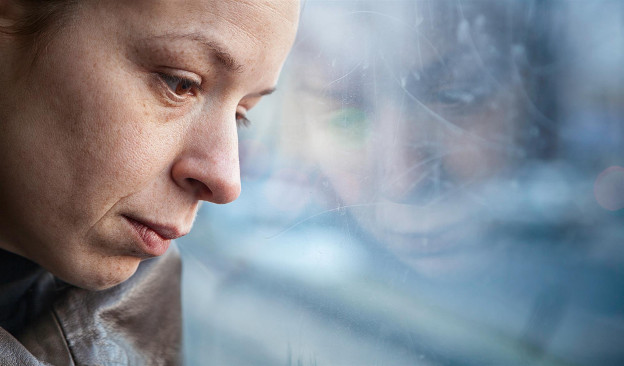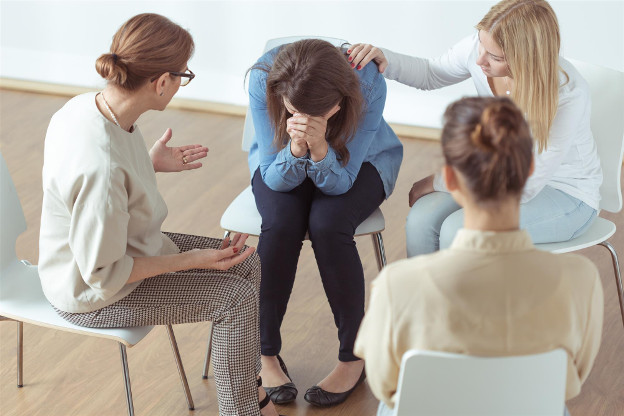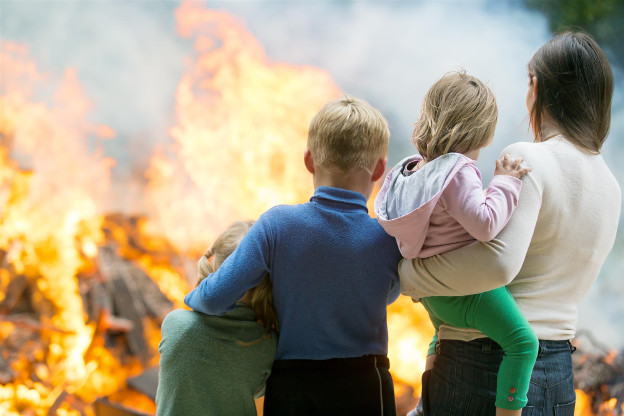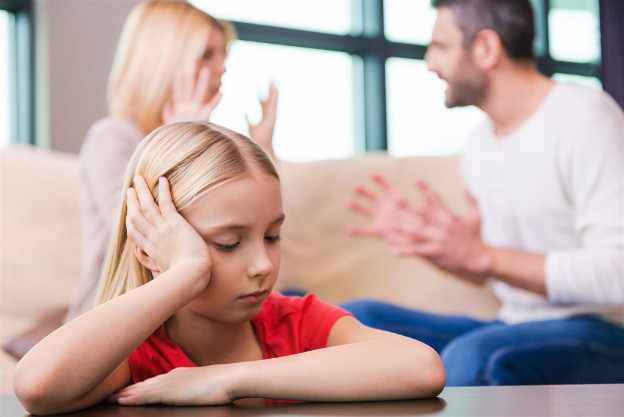GRIEF AND LOSS: RECOGNIZING THE SIGNS IN CHILDREN AND ADULTS
Loss is a normal part of the human experience, and grief is a natural reaction to loss. Virtually everyone will experience grief at some point. While grief is a universal experience, it’s also a deeply personal one.

Grief is a natural response not only to the death of a loved one but also to other life events, including:
- Divorce or separation
- The death of a child or a miscarriage
- A job loss or the end of a career
- A change in health status, such as being diagnosed with a chronic illness
- Loss of independence due to disability
- Loss through theft (such as a treasured family heirloom)
- Losing a companion animal
- Moving to a new home/relocating to a new place
Grief symptoms vary in type, intensity, and duration from person to person. Yet, most people will experience some common symptoms, such as sorrow, numbness, guilt, depression, and anger.
ASSESSING GRIEF IN HEALTHCARE AND EDUCATION SETTINGS
Counselors, school psychologists, and social workers in healthcare and school settings often receive formal training on grief and loss. Yet, those who work most closely with patient and student populations and members of the public-nursing assistants, teachers, coaches, and others-often do not receive such training.
Ahead, we’ll take a closer look at the importance of providing grief training to those who work closely with patients, students, and the public-workshops, classroom sessions, written materials, and medical videos covering grief and loss can help. We’ll also examine grief more closely, including why people experience it and how adults and children respond differently to grief and loss.
WHY WE EXPERIENCE GRIEF
Grief plays an important function in our lives by allowing us to process and deal with the complex emotions that can emerge after experiencing a loss. In short, it’s part of our psychological evolution.
For many people, grieving is a necessary part of the process of accepting a loss, such as the death of a loved one or the end of an important relationship.
HEALTHY VS. UNHEALTHY GRIEF
Healthy grief, sometimes called normal grief or functional grief, is somewhat paradoxical- people who are grieving are doing their best when they’re feeling their worst. Grief brings on a range of emotions and reactions, which can include:
- Behavioral: Distancing oneself from family and friends; losing interest in activities; socializing less; loss of joy; treasuring objects of the deceased person.
- Cognitive: Difficulty concentrating or thinking clearly; difficulty making decisions; lack of focus; short-term memory problems; worrying excessively.
- Emotional: Feeling numb, apathetic, or indifferent; worrying excessively; having mood swings, feeling fearful; having bursts of grief; feeling guilty or regretful; feeling angry or resentful.
- Physical: Trouble falling or staying asleep; changes in appetite; lack of energy or fatigue; slowed movement; restlessness.
- Spiritual: Feeling lost or lonely; questioning faith; blaming God; feeling a lack of meaning or purpose; wishing to join the deceased person.
COMPLICATED GRIEF
These reactions to grief are normal. However, when these symptoms don’t improve after an extended period (more than a year), a person may have what is known as complicated grief.

People with complicated grief are more likely to have problems with normal day-to-day functioning, and they may become depressed or suicidal. Complicated grief can affect both men and women, but older women are more likely to experience it.1
Losing a loved one unexpectedly or violently, losing a child, not having a strong support system or friendships, and having a history of depression can all increase a person’s risk of developing complicated grief.
Without appropriate treatment, a person can develop serious physical, mental, or social complications. Some people may engage in destructive behaviors like drinking excessively or abusing drugs, spending compulsively, or engaging in risky sexual behavior.
TYPES OF UNHEALTHY GRIEF
There is no right or wrong way to grieve. However, not confronting the range of feelings that often emerge after a loss may delay healing and be detrimental to a person’s emotional health.
Not feeling much different than before a loss and suppressing feelings when they arise is referred to as absent grief.
Pushing feelings aside to be dealt with “in the future” is called delayed grief. Delaying grief can lead to “grief waves” or unexpected emotional outbursts down the line.
Prolonged grief occurs when a person still feels overwhelmed by sadness and grief more than a year after the loss.
Exaggerated grief is when a single emotion, such as anger, dominates a person’s experience after a loss.
People struggling with unhealthy grief may need help additional help identifying and working through their feelings. Grief counseling can help.
CULTURAL CONSIDERATIONS SURROUNDING GRIEF AND LOSS
Many Western societies-and particularly the U.S.-have moved away from some of the mourning traditions and rituals that for centuries have helped people in cultures around the world deal with loss.2
Not acknowledging or discussing death and dying openly-whether through talk therapy or traditions and rituals-can have the unfortunate effect of making death feel even more frightening.

Cultural attitudes can also be a barrier to the grieving process for some people-those who believe that crying and expressions of sadness are signs of weakness, for example. These individuals may hold in their feelings and not allow themselves to grieve.
HOW GRIEF MAY AFFECT CHILDREN
While there’s no set time for bereavement or a prescribed way to grieve, it’s important for healthcare professionals and others who work with the public to be able to recognize when people aren’t processing their grief in healthy ways and may need additional emotional support.
This is especially true when it comes to younger children, whose cognitive abilities aren’t yet fully developed and who may respond to loss differently than adults.

In young children, especially, the signs of grief are not always obvious. General behavioral changes in children who have experienced a loss can include clinginess, separation anxiety, withdrawal, aggression, regressive behaviors, difficulty concentrating, sleep difficulty, and trouble at school.
These are normal reactions to loss, but they can become debilitating if the child isn’t encouraged to express his or her feelings and provided a safe, supportive environment in which to do so.
- Children aged 0-2 have no concept of death. If a parent dies, the child may notice their parent’s absence and have separation anxiety; they may also have sleep troubles or engage in regressive behavior.3
- Children aged 2 to 5 may see death as reversible and make up fantasies to fill in their gaps in knowledge about death; they may have fears of abandonment and show regressive behaviors, such as bed wetting.3
- Children age 5 to 11 may be withdrawn and sad after a loss; they may feel angry and have difficulty concentrating, which can lead to problems at school; some may engage in regressive behavior (e.g., thumb sucking, bed wetting); others may put on a brave face and cope with their feelings by becoming more controlling.3
It’s very common for children and adolescents to experience the death of a loved one or another loss. Consider the following statistics:4
- 90% of 1,000 high school juniors and seniors polled said they had experienced the death of a loved one.
- 1 of every 20 children (5%) age 15 and younger will experience the death of one or both parents.
- 1.5 million children live in a single-parent household due to the death of one parent.
- 72% of participants in a childhood bereavement study believed their lives would have been “much better” if their parents hadn’t died so young.
- In a nationwide survey about grieving among students, 87% of teachers reported that they had observed difficulty concentrating in students who had lost a parent or guardian; 82% reported observing withdrawal and less participation from students who had lost a parent; 72% observed increased absenteeism; 68% observed a decrease in the quality of students’ work.
Children who have lost a parent to violence (e.g., domestic homicide) or experienced or witnessed violence or abuse are especially vulnerable if they don’t get the right help. Children whose parents have divorced or separated may also face significant grief over the loss.

It’s critical for healthcare professionals, teachers, coaches, counselors, and others who work closely with children and adolescents to be able to assess grief in children and have the tools and support to adequately respond. It can be difficult to come across these tools in one’s daily life, but one of Medcom’s goals is to address this issue through video educational programs.
Medcom’s Featured Series: Mental Health Assessment Tools: Loss and Grief – 3 Disc Series
For professionals aiding people with mental health disorders and those who are grieving, assessing the person’s symptoms is the first step toward making a diagnosis and developing an appropriate treatment plan.
Medcom’s Health Assessment Tools medical video series was designed specifically for mental health professionals working in the fields of psychology, psychiatry, social work, counseling, nursing, first response, and the military.
It also contains helpful information for teachers, coaches, mentors, and spiritual guides who work with students and members of the public every day.
Viewers learn to identify non-verbal cues and body language identifiers across a broad spectrum of disorders. The collection seamlessly integrates into your current mental health training program and will prove to be a valuable addition. For more information about this series or to set up a free preview, please contact Medcom at 800-541-0253, or email [email protected].
ABOUT MEDCOM
For over 50 years, Medcom has been a trusted education provider among healthcare professionals, students, patients, and their loved ones. Our vast library of products is used nationwide by universities, hospitals, long-term care facilities, and mental/behavior health areas.
Medcom offers a complete suite of healthcare education programs on DVD and streaming video to help ensure quality care. Our award-winning products not only meet regulatory compliance, but the Medcom solution is cost-effective, meets in-service and continuing education needs, and boosts employee retention. To ensure the highest level of quality, we have worked with leading healthcare and professional organizations, such as the American Lung Association, Johns Hopkins Hospital, and the Mayo Clinic. Learn more on our website.
Sources:
- https://www.mayoclinic.org/diseases-conditions/complicated-grief/symptoms-causes/syc-20360374
- https://theconversation.com/what-ancient-cultures-teach-us-about-grief-mourning-and-continuity-of-life-86199
- https://www.mariecurie.org.uk/help/support/bereaved-family-friends/supporting-grieving-child/grief-affect-child
- https://www.childrensgriefawarenessday.org/cgad2/pdf/griefstatistics.pdf
